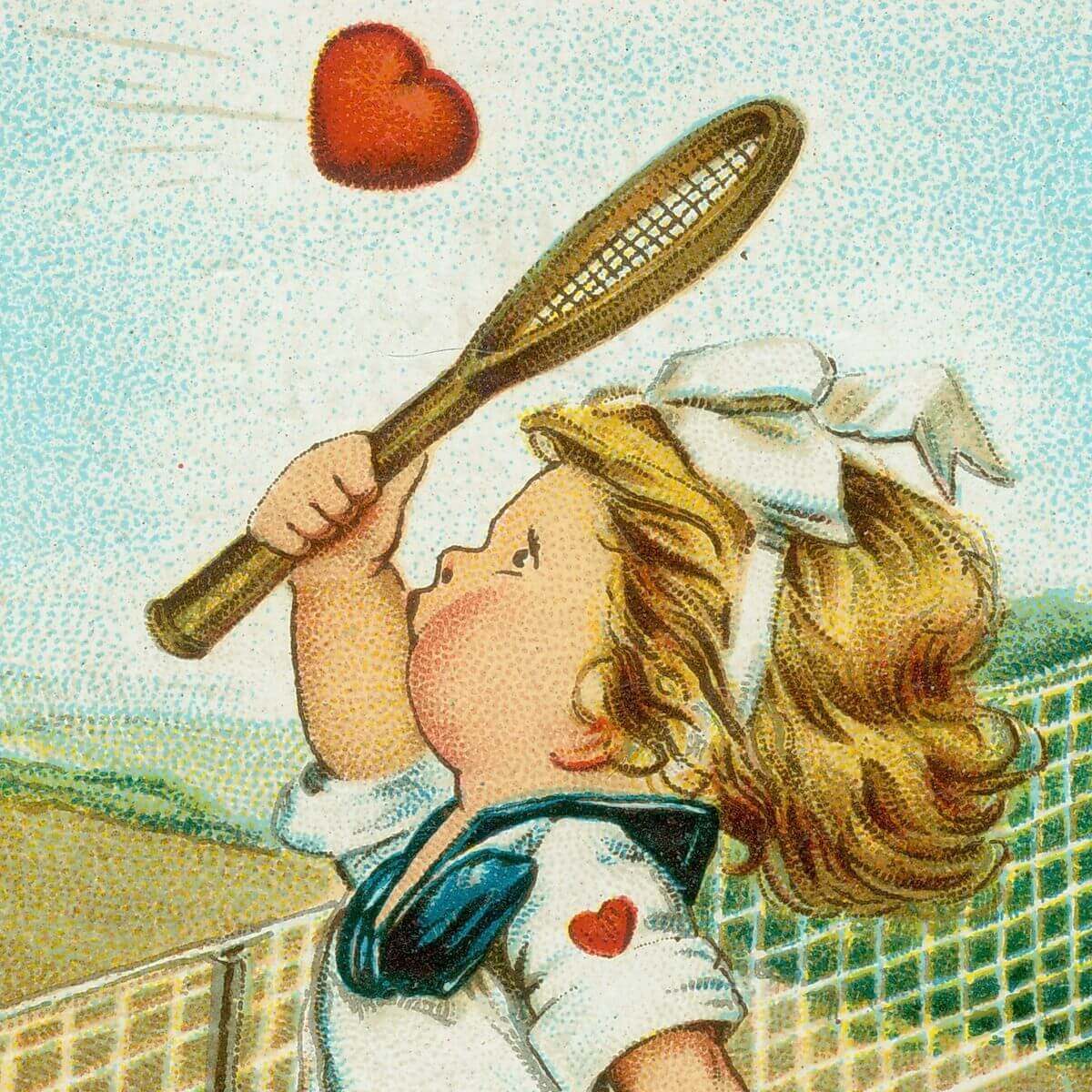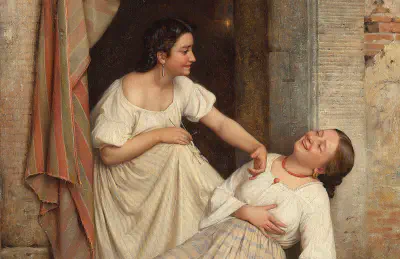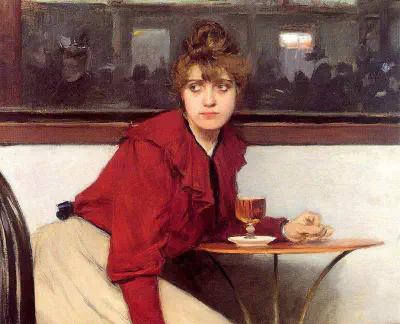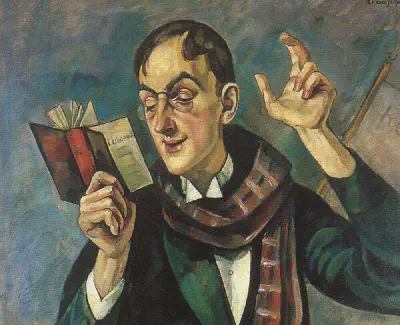Introduction
Imagine you’ve been dating somebody for a while. Things are going well. You like each other, and the dates are all enjoyable and fun. You are pretty happy with how things are progressing. But one day, the other person turns to you—an intense look on their face—and says in a tremulous voice, “I love you.”
You are stunned. Astonished. This puts things on a different footing. Everything has moved up a notch, and you are not sure how to respond. Perhaps your reaction to this revelation of love is pleasure and delight. Perhaps you are horrified, and you descend into wild panic, making your excuses and resolving to cut all contact. Either way, this declaration of love has changed things. There’s no way back from saying “I love you.”
But this is also pretty strange. What has just happened? Why has this declaration—these “three little words” as the popular songs have it—had such a transformative impact? One answer is given by the philosopher Alain Badiou, who writes that:
A declaration of the “I love you” kind seals the act of the encounter, is central and constitutes a commitment. [1]
For Badiou, love always begins in contingency, in chance encounters. But with the declaration of love, something changes. Saying “I love you”, Badiou writes, is a way of “locking in chance” [2]. Until now, this love affair has been another uncertain, changeable thing in a world governed by chance. But now this declaration has been made, something new has entered into the equation. What was once under the spell of chance now becomes an opportunity of constructing something new: a new truth or a new future. Again, Badiou writes that
But chance, at a given moment, must be curbed. It must turn into a process that can last. This is a very difficult, almost metaphysical problem: how can what is pure chance at the outset become the fulcrum for a construction of truth? [3]
No wonder it’s such a big deal when somebody says, “I love you.” Because perhaps this simple statement is, as Badiou concludes, “a declaration of eternity to be fulfilled or unfurled as best it can be within time: eternity descending into time.” [4]

Love, trust and the future
When we declare love like this, we are saying something about the future. We are saying how we want the future to be. We are saying that we will value this connection regardless of the comings and going of change and chance. We are saying that this love will subsist come what may. Because, as Shakespeare puts it in Sonnet 116, “Love is not love / Which alters when it alteration finds…”
This connection with the future also necessarily involves trust. We don’t know that things will work out. But we put our trust in this person or in this relationship nevertheless.
It is trust that bridges the gap when the future is uncertain. As the philosopher Onora O’Neill puts it, trust is called for, “not because everything is wholly predictable, let alone wholly guaranteed, but on the contrary because life has to be led without guarantees."[5] Trust matters most when there is a deficit of knowledge, when we have to make judgements in the face of incomplete evidence. Putting our faith in another person, we stake our life on the chance that things will work out. And we hope our trust will be warranted. We don’t trust the other person because we know things will go well, but out of the hope that they will do so, and that our trust in this other human being will be rewarded.
The word “trust” itself has its roots in the Old Norse term treysta. The Old Norse term means “to secure”, “to rely on”, or “to make safe and strong.” When we extend trust to others, our world becomes more solid, more concrete, more reliable. In trusting, as the Dutch philosopher Adriaan Peperzak puts it, “I join or bind myself to another person and this person to me…"[8] Trust happens in the extending of trust—step-by-step, incrementally. And if things work out well, which is never guaranteed, it makes the world safer, stronger and more secure. This makes trust something like one of those bridges you find in folktales, and that only appear when you take the first step. Here’s an example, from Ben Okri’s Booker prize-winning novel, Astonishing the Gods.
He was still wondering about the places beyond, from which understanding comes, when he found himself at the foot of a fabulous bridge. The bridge, completely suspended in the air, held up by nothing that he could see, was a dazzling construct, composed entirely of mist. He was bewildered by the insubstantiality of the bridge. It too seemed to be made of light, of air, of feelings. He was afraid to step on it lest he would plunge down below. “What holds up the bridge?” he asked his guide. “Only the person crossing it,” came the reply. “You mean that if I am to cross the bridge I must at the same time hold it up, keep it suspended?” “Yes.” “But how can I do both at the same time?” “If you want to cross over you must. There is no other way."[6]
There is no other way. You have to take the first step, without any guarantee that things will work out. Trusting isn’t about weighing up risks. If you are weighing up risks, as the Danish Philosopher Søren Kierkegaard knew, you are not trusting. Instead, you are falling into mistrust.
Kierkegaard wrote that love, and the trust that underpins love, “builds up”—an idea he took from I Corinthians 8:1. But what does love build? It builds itself, in the same way that is the one who crosses the bridge who keeps it suspended. This is why mistrust is so harmful: because is incapable of building anything at all. Mistrust, Kierkegaard wrote, “does exactly the opposite of what love does."[7]
Trust and trustworthiness
But does love demand we trust indiscriminately? Surely this looks like a huge risk. In her brilliant TED talk on trust, O’Neill explores the idea that we are living through a crisis in trust. You would think that if there was such a crisis, the solution would be that we should aim to trust more. However, O’Neill argues this is not the case at all.
I think that’s a stupid aim. It’s not what I would aim at. I would aim to have more trust in the trustworthy but not in the untrustworthy. In fact, I aim positively to try not to trust the untrustworthy.[9]
There are many occasions when defaulting to trust is clearly unwise. A famous folk-tale from the Anvaar Soheili, a Persian collection of fables dating to around 1500 CE, tells of how a scorpion hitched a ride across the river on the back of its friend, an obliging turtle. The scorpion promised it wouldn’t sting the turtle; but when it reached the other side, it did so anyway.
Fortunately, the turtle was unscathed, having the protection of its shell (a later version of the story has a frog, not a turtle, with less happy results). And when the turtle protested that this wasn’t any way to treat your friends, the scorpion replied saying, more or less, “Well, what do you expect? I’m a scorpion. It’s kind of what I do.”

There are some people, in other words, whom we might have dealings with, whom we might even like or consider to be friends, but whom we wouldn’t trust, at least in certain domains. So building trust by trusting more is not necessarily a wise move. Instead, we should be more judicious when it comes to whom we trust. And because we have no direct power over the trustworthiness of others, we should work on becoming more trustworthy ourselves. Because we are the ones who hold up the bridges we cross.
Trust, love and building the future
The Chinese Confucian tradition has a lot to say about this process of developing trustworthiness. One of the core virtues in Confucianism is xin, which can be translated as “trustworthiness” or “reliability.” For philosopher Karyn Lai, this reliability has two components.[10] The first component is ethical: it is about consistency of action and behaviour over time. Love is something that builds, and to build you need to aim for consistency, even if you don’t always attain it. But the second component of reliability is more to do with epistemology, or how we know and understand the world. To be reliable, you need to have a clear grasp of the fact of changeability, and the ability to respond flexibly to different circumstances so that, even when things are difficult or unpredictable, you can continue to be relied upon.
The Chinese character for “reliability” is 信. This character is made up of two components. The component on the left is ren (亻or 人), and means “human being” or “person”. Meanwhile, the component on the right is yan (言), and means “word” or “something that is spoken.” One popular understanding of this term is that it represents somebody who quite literally stands by their word. This perhaps this is why, for Badiou, love declarations are so significant. Because once you say “I love you,” you have staked yourself on a particular future, and you are answerable for this future and how it turns out.
To respond to the demands of reliability, Lai writes, we need to build a repertoire of successful and effective actions. This repertoire will enable us to navigate through uncertainties and changeable circumstances. It is not a fixed and habitual set of actions. Instead, you could think of it as being close to the way a navigator steers a predictable course, whatever the weather throws at them (see the article on wisdom and navigation from the previous season). And of course, life being what it is, things don’t always work out so well. There are, inevitably, lapses and mistakes. Lai writes:
Each action is significant as, together with others and taken over time, it cumulatively adds to a picture of agency. Isolated lapses or failures may not necessarily alter the perception of a person’s ability, just as a celebrated musician’s slip up at one concert may not necessarily affect her reputation as a skilled performer. Nevertheless, if a pattern of mishaps develops over time, our picture of her reliability will change.
And here, perhaps, it’s possible to see the force of the idea of reliability. Because genuine reliability can outlast the span of a relationship. If after a while—a week, a month, a year, a lifetime—you end up heading off towards different futures, is this the end of love? Or is it one of love’s many alterations? And if, once a relationship ends, you can continue to respond to the other person with love and care and concern, perhaps this is not love’s failure, but instead love’s confirmation.
Questions
Let’s get stuck into this week’s questions. When you’ve had a think, dive into the comments on the Agora, and let’s chat.
- Have you ever told anyone “I love you”? If so, what did you mean?
- According to Shakespeare, “Love is not love / Which alters when it alteration finds…” But isn’t there such a thing as fleeting love? And is this not in some ways as important as more enduring love?
- In what way do declarations of love help build a future?
- Is reliability in itself a virtue, even if people are reliably bad? Think of the scorpion, which is reliable in stinging others, or a friend who reliably steals $10 from your wallet. Can we love those who are reliably bad more than those who are sporadically bad?
- What practices can help us develop reliability? And why should we bother developing it?
Notes
[1] Alain Badiou, In Praise of Love, p. 35
[2] ibid. p. 47
[3] ibid. p. 41
[4] ibid. p. 47
[5] Onora O’Neill, A Question of Trust () p. 24
[6] Ben Okri, Astonishing the Gods (Head of Zeus 2014), p. 4
[7] Søren Kierkegaard, Works of Love (Princeton University Press 2013), p. 226
[8] Adriaan Peperzak, Trust: Who Or What Might Support Us? (Fordham University Press 2013), p. 12
[9] Onora O’Neill, What We Don’t Understand About Trust (TED talk 2013). See the link here.
[10] Karyn L. Lai, “Learning to be Reliable: Confucius’ Analects”, in Karyn L. Lai, Rick Benitez & Hyun Jin Kim (eds.), Cultivating a Good Life in Early Chinese and Ancient Greek Philosophy Perspectives and Reverberations. Bloomsbury. pp. 193-207 (2018)
More further reading
Books, articles, and music
There’s a huge literature on the philosophy of trust. A good starting point is Katherine Hawley’s Trust: A Very Short Introduction (OUP 2012).
And, of course, the music track for this week is the Shirelles and their wonderful version of Will You Love Me Tomorrow.
Online resources
As suggested in the notes, Onora O’Neill’s TED talk on trust is great.
Image: Valentine Greetings. A Love Game, postcard from 1915. Public domain via Wikimedia Commons.



